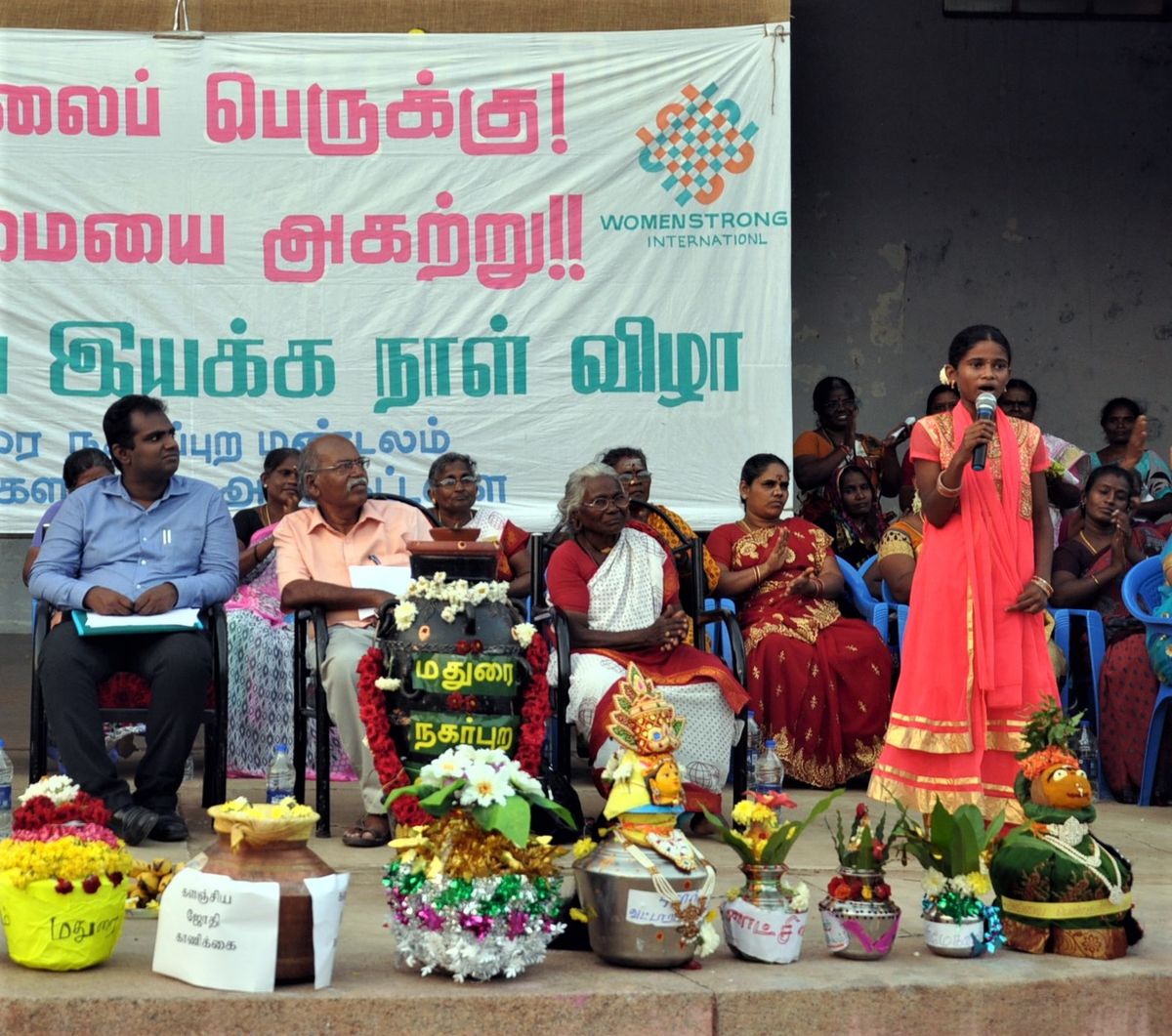Girls’ Leadership Forum: Sanitation and the Potential of Girls to Change the World

A Teenage Girl Shows Us how to Improve the World, One Toilet at a Time
More than 4.5 billion people worldwide live without a household toilet. Everyone suffers in the absence of private sanitary facilities, but women and girls usually suffer most. Today, it is clear that access to decent sanitation is a basic human right, as well as an absolute necessity in eradicating poverty.
The United Nations Sustainable Development Goals call for everyone to have access to a safely-managed household toilet by 2030. And four years ago, the United Nations General Assembly officially designated November 19 as World Toilet Day, coordinated by UN-Water in collaboration with governments and partners.
In Madurai, India, WomenStrong’s Consortium Member DHAN Foundation has been working diligently for years to end open defecation by helping impoverished families build toilets. In addition, DHAN offers instruction in hygiene and sanitation to thousands of women who are part of DHAN’s self-help savings groups, and more than 7,000 adolescent girls participating in WomenStrong-DHAN Girls’ Clubs. But the information shared has even broader and further-reaching impact. Girls take home what they’ve learned to share with their families and friends.
Last week, 13-year-old Priyadharsini Marudhupandian bravely stood before a gathering of more than 4,000 DHAN members to describe how the lessons learned in her Club helped her family take a big step toward a healthier, more dignified life. Here’s what she said:
“My name is Priyadharsini Marudhupandian and I am studying in the Seventh Standard (grade) in the government higher secondary school. I live with my parents and one brother.
“We used to openly defecate because, until 6 months ago, we had never had a toilet in our house. When I would go outside, I needed my mother, friends, or someone else to go with me because the area where we went is very dangerous. People are moving around in the area all the time during the day, so we would have to wait until nighttime. Then, when we went to defecate at night, there were insects and dogs, and it was very scary. Elders would have to stand guard against dangers. This affected me in many ways.
“At the same time, for about a year, I had been Secretary of the Kurunji adolescent Girls’ Club. Our group was overseen by the Thenmadurai Vattara Kalanjiam (women’s self-help group) of the DHAN Foundation. In our monthly meetings, I learned about anemia, nutrition, personal hygiene, general health, and much more. They taught us about the many problems of open defecation and the importance of toilet use.
“I also learned at the meetings that loans were available through the Kalanjiam. I went home and told my mother about the need to construct a toilet at home to maintain good health, and also about the loans. My parents then applied for and received a loan from a Kalanjiam to build a toilet, and we constructed one. Now, I am not having any trouble, and I am spending more time on my studies.
“I am grateful to the Kalanjiam and our DHAN Health Associate for teaching me. Otherwise, I would not have been aware of the health implications, and I would not have had the information to share with my parents.”
“India is a developing country; it has developed in many fields, including advanced technologies. Now, we need to focus on changing the attitudes and culture that permit open defecation, and we must encourage people to start using toilets. This has been my experience, and I am grateful to have a chance to share them with you on World Toilet Day.”

